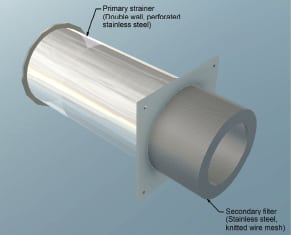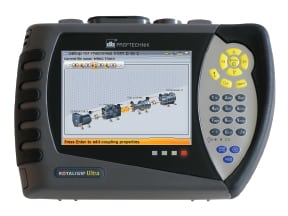News
-
News
India Directs Coal India to Sign Fuel Supply Agreements with Coal-Strapped Generators
A rare presidential directive issued on Tuesday by India’s government orders national coal supplier Coal India to sign fuel supply agreements (FSAs) with power producers, imposing penalties if supplies dip below 80% of the commitments. The directive responds to concerns from the nation’s coal generators, which say chronic coal shortages are stalling plans to build new plants.
-
News
German Solar Subsidy Slash Prompts New Spate of Solar Bankruptcies
Plunging prices for solar panels, overcapacity, and a recent, substantial slash of government subsidies for solar power in Germany have prompted a rash of major solar firms to declare bankruptcy. Solar Millennium AG’s U.S. subsidiaries—including Solar Trust of America—filed for Chapter 11 insolvency proceedings in a concerted action on Monday, while giant solar cell–maker Q-Cells filed for insolvency in a German court.
-
News
NRC Approves COLs for New AP1000 Reactors at V.C. Summer
In a 4-1 vote, the Nuclear Regulatory Commission (NRC) on Friday approved an application for two combined construction and operating licenses (COLs) for new Generation III+ reactors at V.C. Summer Station in Jenkinsville, S.C. The project has been proposed by South Carolina Electric & Gas Co. (SCE&G), principal subsidiary of SCANA Corp., and Santee Cooper, South Carolina’s state-owned electric and water utility.
-
News
New House Bill Could Protect Generators from Environmental Penalties in Emergencies
A bipartisan group of U.S. House of Representatives members last week introduced a bill that would absolve companies that generate or transmit power under a federal emergency directive from violation of environmental rules or civil and criminal liability suits. The bill also directs the Department of Energy to minimize adverse environmental impacts in its emergency order.
-
News
Federal Court Vacates EPA’s Disapproval of Texas SIP Plan
A federal appeals court last week vacated the Environmental Protection Agency’s (EPA’s) Sept. 15, 2010 disapproval of Texas’ State Implementation Plan (SIP), saying the federal agency overreached in its interpretation of portions of Texas state rules used to implement the Clean Air Act.
-
News
RWE, E.ON Scrap Key Plans to Develop New Reactors in the UK
German utilities RWE and E.ON, parent companies of the Horizon joint venture, last week said they would not proceed with key plans to develop two new reactors in the UK. The decision could put the UK’s plans to stake its energy future on nuclear power in disarray.
-
News
Miss. PSC Votes to Allow Continued Construction of Kemper IGCC
Days after the Mississippi Supreme Court reversed an order by the Mississippi Public Service Commission (PSC) granting a key permit to Mississippi Power’s 582-MW integrated gasification combined cycle (IGCC) Kemper power plant, the PSC voted to temporarily allow the Southern Co. subsidiary to continue construction of the plant in Kemper County, Miss.
-
News
Great Lakes States, Federal Agencies Sign MOU for Orderly Evaluation of Offshore Wind Proposals
A memorandum of understanding (MOU) signed by 10 federal agencies and the governors of Illinois, Michigan, Minnesota, New York, and Pennsylvania on Friday seeks to promote the efficient and orderly evaluation of offshore wind proposals for the Great Lakes.
-
News
Patented Filter Medium for Core Cooling
Multi-disciplined engineering and consulting firm ENERCON received patents for a filter medium for strainers used in nuclear reactor emergency core cooling systems (ECCS). ENERCON’s Debris Bypass Eliminator was developed in response to the Nuclear Regulatory Commission’s Generic Safety Issue, GSI-191, “Assessment of Debris Accumulation on PWR Sump Performance.” During long-term recirculation for cooling of the […]
-
News
True Machine Train Alignment
Ascertaining the alignment of all machines in a multiple machine train has always been a cumbersome and time-consuming process. The new ROTALIGN ULTRA MultiCoupling feature allows the alignment of up to seven machines in a train to be measured simultaneously, with a single quarter rotation (or less) of the shafts. This saves time and resources […]


